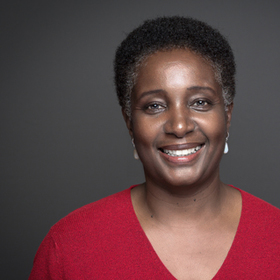by Glenda Clare •
Grandparents and other relatives (often referred to as kinship caregivers or heads of grandfamilies) often assume custody after receiving a call from a concerned neighbor or visiting and finding dirty, unfed children alone in a messy home.
In times of crisis, relatives step in to care for the children. Parental abuse of alcohol and other drugs, death, illness, domestic violence, or incarceration are often the trigger for kinship care arrangements. Even when the child welfare system isn’t involved, families often take care of their own.
You Are Not Alone
If you are caring for a relative’s child and child welfare is not involved, you are not alone. Today in North Carolina more than 225,000 children live in homes headed by a grandparent or other relative (Grandfamilies, 2018). Of these children, just over 2,600 (1.2%) are in DSS custody (Duncan, et al., 2019).
Kinship Caregiver Needs
Unlike foster and adoptive parents, family members who bring children into their homes during a crisis have no time to plan. This can leave them with unmet needs. In addition, many services and resources are available only to those who obtain foster care licensing.
Following are areas of support needed by children and the members of their grandfamilies who are not involved with the child welfare system:
- Legal Support. Custody is a requirement to enroll a child in school and receive medical, dental, financial, and other services. Families need legal counsel to formalize custody status.
- Financial Assistance. Kinship care brings many unexpected expenses. Children are expensive. Many grandfamilies need assistance to defray costs associated with parenting.
- Health, Dental, and Mental Health Care Insurance. Growing children, especially those who have experienced abuse and/or neglect, require dental, health, and mental health services. Insurance is needed to secure adequate services.
- Housing Assistance. Space is needed to include children in the household. Old space may need to be altered or there may be a need to acquire new space. Relative caregivers often need housing assistance.
- Education Services. Children may require special education services.
Help Does Exist
A limited number of programs are available for children in and outside the child welfare system–click here to download a list. Eligibility for most is based on family income. Contact your county department of social services for more information.
FFPSA: Help is on the Way!
Under the age of 60 and part of the workforce, most grandfamilies are ineligible for services based on family income. They have significant need but are eligible for only a few resources and services. The federal Family First Prevention Services Act (FFPSA), enacted in February 2018, will bring additional help to families. Services that FFPSA will bring to North Carolina in the near future include:
- Prevention Services for Kin. Up to 12 months of prevention services for children at risk of entering foster care.
- Prevention Services for Children, Parents, and Kin. Prevention services to help the entire kinship triad simultaneously (child, parent, and kin).
- Foster Care Licensing. Assistance to help kin overcome barriers to foster home licensure. For more on licensing for kin, click here.
- Kinship Navigation. Assistance to connect grandfamilies with services and resources. For more on this, click here.
Programs for grandfamilies in and outside the child welfare system are being developed. A more extensive list of existing programs can be found on the North Carolina Grandfamilies Fact Sheet created by Generations United: https://bit.ly/2KXNQoU
Glenda Clare is the North Carolina representative to the Generations United National GrAND Voices Network. She is a Family Partner Specialist at the Center for Family and Community Engagement at North Carolina State University and a former kinship caregiver.
For references cited in this issue, click here.


